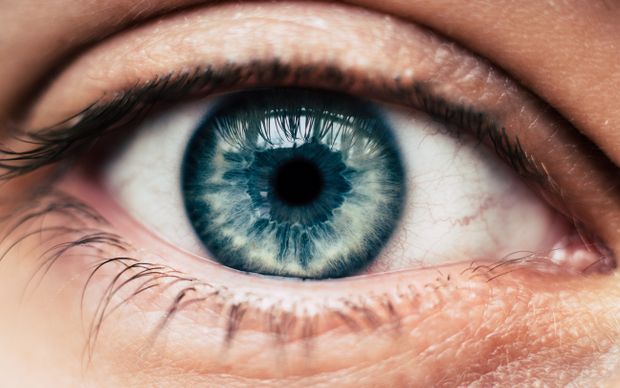1. Get an Annual Dilated Eye Exam
Adults should have a yearly dilated eye exam to detect common conditions like cataracts, glaucoma or macular degeneration. These diseases could slowly be damaging the eye and you would not be aware of the destruction unless you have a dilated eye exam. Be proactive and prevent blindness before its too late, schedule your annual eye exam (be sure to request dilation).
2. Eat Green Leafy Vegetables
Don’t discount the power of the leafy greens, such as spinach, kale, and lettuce. These have a powerful antioxidant called lutein which can help protect against macular degeneration
3. Give Your Eyes a Break
If you work in front of a computer screen all day, use the 20−20−20 rule to let your eyes rest: Every 20 minutes, look 20 feet away or more for at least 20 seconds. This will help break the muscle spasms that can occur in the eye which can lead to eyestrain and headaches.
4. Stop Smoking
Smoking speeds up a process called oxidation in the eye, which increases your risk of developing cataracts and macular degeneration.
5. Stay Cool and Wear Shades
Just as you wear sunblock to protect against sunburn, you should always wear sunglasses whenever you are out in sun. Sunglasses should provide 99 – 100 percent protection from UVA and UVB radiation, and this will protect you against cataracts, macular degeneration, and ocular tumors. Check the label before you purchase your glasses, be sure the protection is adequate.
6. Do Not Sleep in Your Contact Lenses
It doesn’t matter what type of contacts you wear (monthly, daily or overnight lenses) you should never sleep in any type of contact lenses. Sleeping in your contact lenses will increase your risk of developing a corneal ulcer, which can lead to rapid blindness. Take the extra minute each night to remove your contact lenses and don’t gamble with your vision.
7. Stock your Home with Saline Eyewash
We have many liquids in our house that can quickly damage the eye. By having saline solution handy, you can swiftly flush toxins out and prevent irreversible scarring. Timing is of the utmost importance when chemicals are involved.
8. Do Not Use Drops that say “Gets the Red Out”
Eye drops that claim “will get the red out” will also suffocate the eye by constricting the blood vessels that supply it with oxygen and nutrients. Over time, your eye will become addicted to the drops, a condition referred to as rebound redness. If your eyes are chronically red you should see an ophthalmologist for further evaluation. It’s never too late to break the eye drop addiction.
9. Do Not Ignore Warning Signs
We understand it is necessary to see an eye doctor when our vision becomes blurry. However, don’t disregard other symptoms such as floaters, flashes of light, or waviness of straight lines. These symptoms could be an early indication to retinal diseases that can quickly lead to blindness.
10. Blink and Blink Again
Frequent and gentle blinking is essential to maintaining healthy eyes and optimal vision because it allows your eyelids to keep the surface of the eyes coated with beneficial layers of tears. It’s best to blink every two to four seconds or about fifteen to thirty blinks per minute. Pay special attention to this while working on the computer. People tend to blink about half as much as needed while concentrating, which can lead to dry and blurry eyes, otherwise known as computer vision syndrome (CVS).
To schedule your annual eye exam or discuss any healthy concerns regarding your eyes, our Ophthalmologists are here to help. Schedule an ophthalmology appointment online.
Health Topics:







